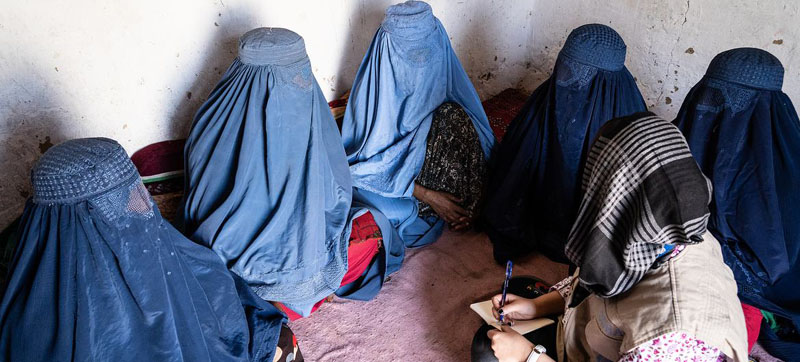 Afghanistan
Afghanistan Taliban’s crackdown on women over ‘bad hijab’ must end in Afghanistan, say UN independent human rights experts
UN independent human rights experts on Friday expressed profound concern over multiple reports detailing arbitrary arrests, detention and ill-treatment of women and girls in Afghanistan.
The incidents, which have surged since early January, are purportedly linked to violations of the Taliban’s stringent dress code for women.
The Human Rights Council-appointed experts called on de facto authorities to comply with Afghanistan’s human rights obligations, including under the Convention on the Elimination of All Forms of Discrimination against Women.
The Taliban crackdown initially began in western Kabul, predominantly inhabited by the minority ethnic Hazara community – which has been the target of extremist violence for years – but swiftly expanded to other areas, including Tajik-populated regions and provinces such as Bamiyan, Baghlan, Balkh, Daykundi and Kunduz.
Forcibly taken
Women and girls reportedly accused by the Taliban of wearing “bad hijab” were arrested during the operation in public places, including shopping centres, schools and street markets.
Some were forcibly taken to police vehicles, held incommunicado and denied legal representation, according to a news release issued by UN rights office OHCHR on behalf of the experts.
“Women and girls were reportedly held in overcrowded spaces in police stations, received only one meal a day, with some of them being subjected to physical violence, threats and intimidation,” they said.
In May 2022, the de facto authorities ordered all women to observe “proper hijab”, preferably by wearing a chadari – a loose black garment covering the body and face – in public and made male relatives responsible for enforcing the ban or face punishment.
Institutionalized discrimination
While some detainees were released after a few hours, others reportedly languished in custody for days or weeks.
The lack of transparency and access to justice means the current number of detainees potentially held incommunicado is hard to assess.
Their release has been made contingent on male family members and community elders providing assurances, often in writing, that they would comply with the prescribed dress code in the future.
“In addition to punishing women for what they wear, assigning responsibility for what women wear to men violates women’s agency and perpetuates an institutionalized system of discrimination, control of women and girls and further diminishes their place in society,” the experts said.
The experts speaking out are mandated by the Human Rights Council to monitor and report on the rights situation in the country as well as on violence and discrimination against women and girls.
They work on a voluntary basis, serve in their individual capacity, are not UN staff and do not receive a salary.
Troubling pattern
Last month, a UN report found that several hundred Afghan women were forced to quit their jobs or were arrested and denied access to essential services in the last quarter of 2023.
Those arrested included women purchasing contraceptive pills, female staff of a healthcare facility and women who were not accompanied by a mahram – a male chaperone.
The de facto authorities reportedly stated that “it was inappropriate for an unmarried woman to work”.
Dire humanitarian situation
Meanwhile, the humanitarian situation across the country continues to deteriorate.
Four decades of conflict, entrenched poverty, climate change-induced and natural disasters and severe restrictions on rights has left almost 24 million people, including over 12 million children, in need of humanitarian assistance and protection.
In response, the UN and relief partners have launched a $3.06 billion response plan for 2024, targeting 17.3 million for assistance.
Greater food supplies are needed alongside rebuilding the agricultural sector, health systems, water and sanitation. Protection for women, children and other vulnerable groups is also a key priority.
Support Our Journalism
We cannot do without you.. your contribution supports unbiased journalism
IBNS is not driven by any ism- not wokeism, not racism, not skewed secularism, not hyper right-wing or left liberal ideals, nor by any hardline religious beliefs or hyper nationalism. We want to serve you good old objective news, as they are. We do not judge or preach. We let people decide for themselves. We only try to present factual and well-sourced news.







